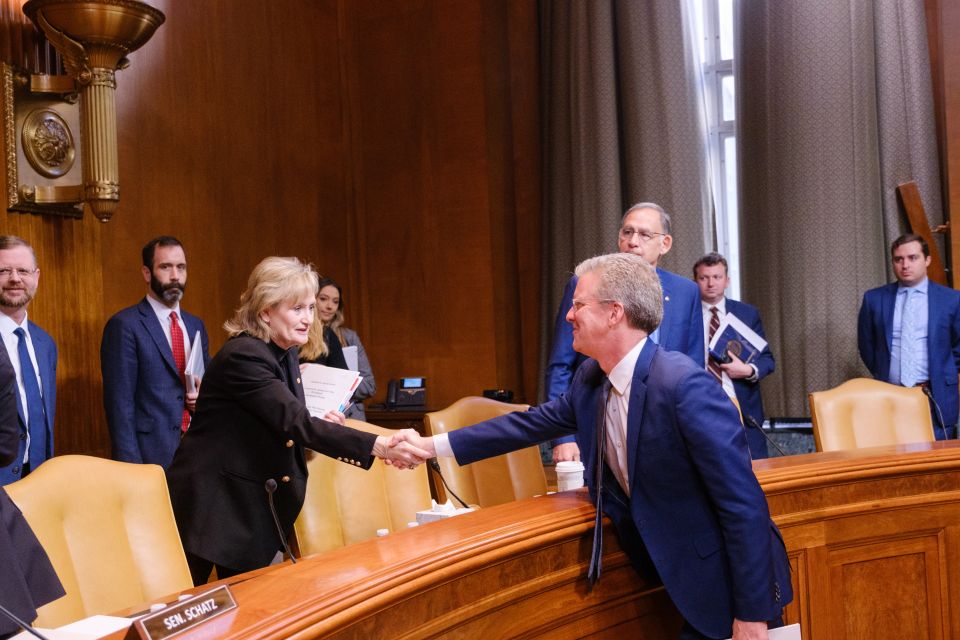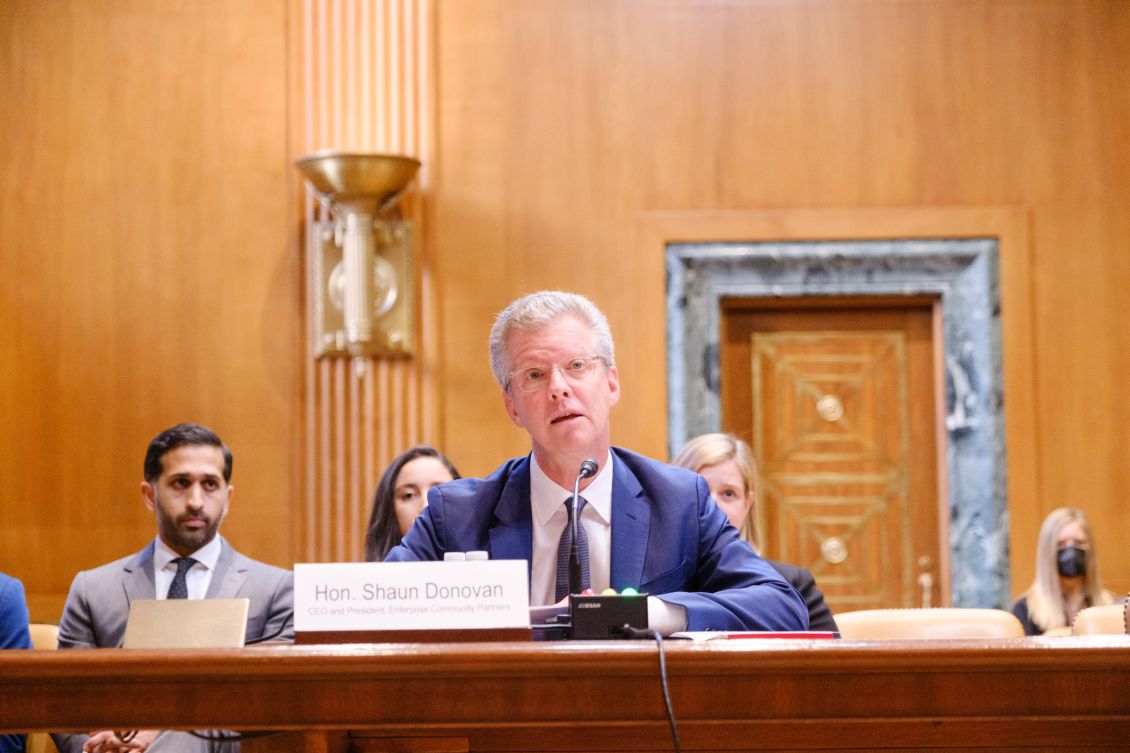Congress must act so that communities hit by disaster can receive funding more quickly and equitably, Enterprise’s CEO and President Shaun Donovan testified before Congress.
“Communities that have experienced tragedies this year – including Maui, where the devastating wildfire took place over four months ago – are still waiting to find out if they’ll even receive funding,” Donovan said in his testimony before the U.S. Senate Appropriations Subcommittee on Transportation, Housing and Urban Development, and Related Agencies. “As extreme weather becomes more frequent and intense, we need to get better at response and recovery, particularly for low-income communities who bear a disproportionate impact.”
One straightforward solution is to enact the bipartisan Reforming Disaster Recovery Act, which would permanently authorize the Community Development Block Grant – Disaster Recovery program with an allocation of funding that can be available soon after a disaster.
Donovan also stressed that communities need funding to be better prepared for disasters, noting that mitigation measures can more than pay for themselves and can save an average of $6 in future disaster recovery costs for every dollar spent. “I applaud Congress for the investments made through the Bipartisan Infrastructure Law and the Inflation Reduction Act. We should build on that success with larger annual appropriations that will reduce the fiscal cost, but more importantly, the human cost of future disasters,” Donovan said.
Read Shaun Donovan’s oral testimony below and full written testimony here.

Good morning, Chairman Schatz, Ranking Member Hyde-Smith, and Members of the Subcommittee.
Thank you for the opportunity to testify today and for hosting this hearing on the crucial issue of disaster recovery.
I am Shaun Donovan, CEO of Enterprise Community Partners, a national nonprofit that addresses America’s affordable housing crisis from every angle, including by creating sustainable and resilient homes and equipping communities to withstand and recover from natural disasters.
I have spent my career working to improve the way the public, private and non-profit sectors work for people and communities too often left behind. As HUD secretary, I helped communities across the country recover from disasters, and chaired the President’s Hurricane Sandy Rebuilding Task Force. As OMB Director, I worked with Congress and federal agencies to better coordinate disaster response and recovery, and better prepare for the worsening effects of climate change.
In the wake of a disaster, people depend on government more than any other time in their lives. I have seen the impact that a well-funded, well-coordinated disaster response can have as communities grapple with recovery. Families can rebuild quickly and rebuild better, higher quality housing able to withstand the next storm. I have helped communities wrestle with the wrenching decision to relocate to higher ground for a safer future. I am also all-too familiar with the challenges the government faces, challenges that can shake survivors’ faith in their government and their community. I have seen families and businesses exhaust their insurance and FEMA benefits and have to put their lives on hold while waiting for delayed Community Development Block Grant - Disaster Recovery (CDBG-DR) funds.
As extreme weather becomes more frequent and intense, we need to get better at response and recovery, particularly for low-income communities who bear a disproportionate impact. The best thing we can do after a disaster is to provide resources quickly and ensure they are reaching the people who need them most.
The flexibility and targeting of CDBG-DR are tremendously successful because they help reach those with the greatest need. But CDBG-DR does not get money to communities quickly enough in their time of need due to a lengthy, multi-layered process. First, HUD only receives CDBG-DR dollars when Congress provides special appropriations with new legislative language each time, which often pushes funding into end-of-year spending negotiations. To put that in perspective, all of the communities who have experienced tragedies this year – including Maui, where the devastating wildfire took place over four months ago – are still waiting to even find out if they’ll receive funding.
Once money is appropriated, HUD writes new regulations for each allocation. States and local jurisdictions then start from scratch, developing new programs and guidelines to distribute the funds. This takes an average of 20 months, compounding delays and resulting in different rules for each disaster, leading to inequity within the process.
The challenges are even greater in communities with fewer resources and less capacity, like small jurisdictions, rural areas, Tribal trust lands and Native communities. Limited governmental staffing, poor socioeconomic conditions and unique land ownership make it harder to access and administer funds. To better serve these communities, we need to provide robust technical assistance and support, remove burdensome requirements, and work alongside Tribal Nations, Alaska Natives and Native Hawaiians.
The good news is there are straightforward solutions, which I detail in my written testimony. But the most important is to create a permanent CDBG-DR program with an allocation of funding that can be available soon after a disaster.
Finally, we need to ensure communities are equipped to withstand disasters in the first place. Mitigation measures more than pay for themselves, saving an average of $6 in future disaster recovery costs for every dollar spent. I applaud Congress for the investments made through the Bipartisan Infrastructure Law and the Inflation Reduction Act to build resilience. We should build on that success with larger annual appropriations that will reduce the fiscal cost, but more importantly, the human cost of future disasters.
Thank you again to the Chair, Ranking Member, and all subcommittee members for your bipartisan leadership on this issue. I look forward to answering your questions.
